From the Chicago Reader (February 27, 1998). — J.R.
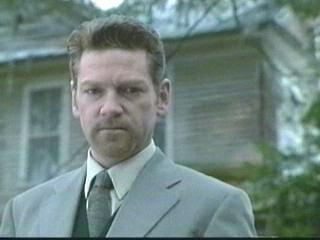
The Gingerbread Man
Rating * Has redeeming facet
Directed by Robert Altman
Written by John Grisham and Al Hayes
With Kenneth Branagh, Embeth Davidtz, Robert Downey Jr., Daryl Hannah, Tom Berenger, and Robert Duvall.
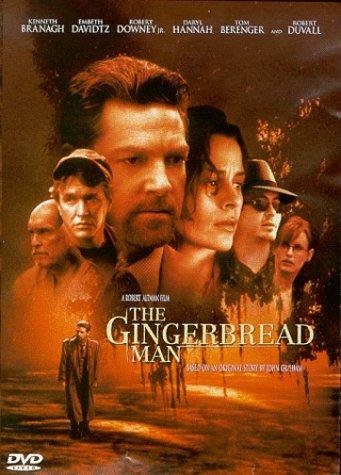
Some people are going to go to The Gingerbread Man looking for a John Grisham movie, and some are going to go looking for a Robert Altman film. Both are likely to be disappointed.
The alliance may have been a shotgun marriage presided over by desperate commerce, though the movie’s press book works overtime trying to put a positive spin on it: “Both Altman and Grisham champion the causes of Everyman underdogs who are fighting the system. Indeed, in their own different ways, these two artists are mavericks, outsiders-by-choice who examine a system and an orderly regimen that they have long ago abandoned. John Grisham left a successful legal practice for an even more lucrative literary career based in large part on his ability to accurately depict the shortcomings of our legal system and the behind-the-scenes machinations that are a routine part of that profession. And against considerable odds, Robert Altman has bucked the Hollywood establishment for 30 years, continuing to make distinctly personal movies exactly the way he wants to make them, ignoring the marketing driven, lowest-common-denominator sensibilities that seem to determine which studio films actually get made.” Read more
From Cineaste, Vol. XXXI, No. 4, September 2006. — J.R.

Spoilers ahead: The title heroine (Silvia Pinal) of
Luis Buñuel’s masterpiece, a Spanish novice
about to take her final vows, is ordered by her
mother superior to visit her rich uncle (Fernando
Rey), Don Jaime, who’s been supporting her over
the years but whom she barely knows. A
necrophiliac foot fetishist, he’s preoccupied with
how closely his beautiful niece resembles his
late wife, who died tragically on their wedding night,
and somehow manages to persuade Viridiana
to put on her wedding dress, which he’s
faithfully preserved. With the help of his servant
Ramona (Margarita Lozano), he then drugs her with the
intention of raping her, but deeply mortified by
his behavior, ultimately holds back and hangs
himself instead, using the skipping-rope he
previously gave to Ramona’s little girl.
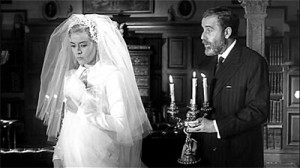
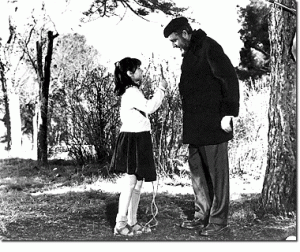
If this opening strongly evokes the horror of a
Gothic novel — a form of literature Luis
From the Chicago Reader (July 1, 1993). — J.R.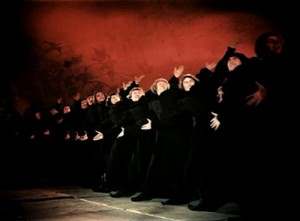
The second feature in Sergei Eisenstein’s controversial, unfinished trilogy, also known as The Boyar’s Plot, with a Prokofiev score and a histrionic, campy (albeit compositionally very controlled) performance in the title role by Nikolai Cherkassov (1946). The ceremonial high style of the proceedings has been interpreted by critics as everything from the ultimate denial of a cinema based on montage (under Stalinist pressure) to one of the most courageous acts of defiance in film history (Joan Neuberger and Yuri Tsivian) to the greatest Flash Gordon serial ever made (my own estimation). The second part climaxes in a dazzling, drunken dance sequence that features Eisenstein’s only foray into color. Thematically fascinating both as submerged autobiography and as a daring portrait of Stalin’s paranoia, quite apart from its interest as the historical pageant it professes to be, this is one of the most distinctive great films in the history of cinema — freakishly mannerist, yet so vivid in its obsessions and expressionist angularity that it virtually invents its own genre. (JR)

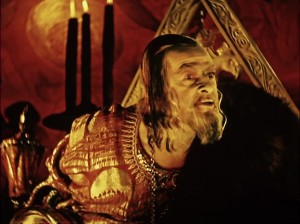 Read more
Read more








